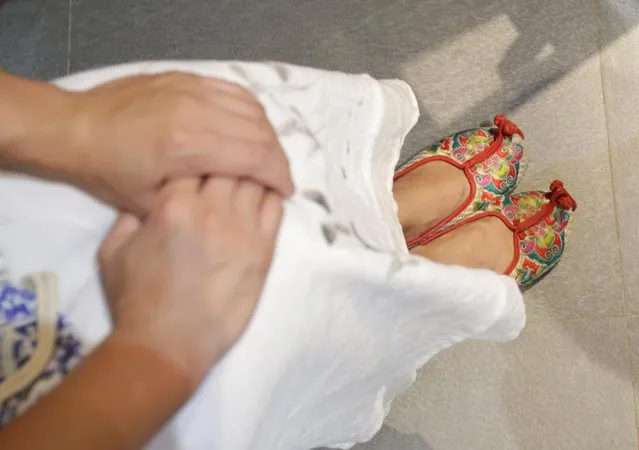
A woman's traditional shoes are seen as she attends a performance of the “guqin” traditional musical instrument, an ancient seven-stringed zither, at an art space in Beijing, China, August 18, 2019. (Photo by Jason Lee/Reuters)
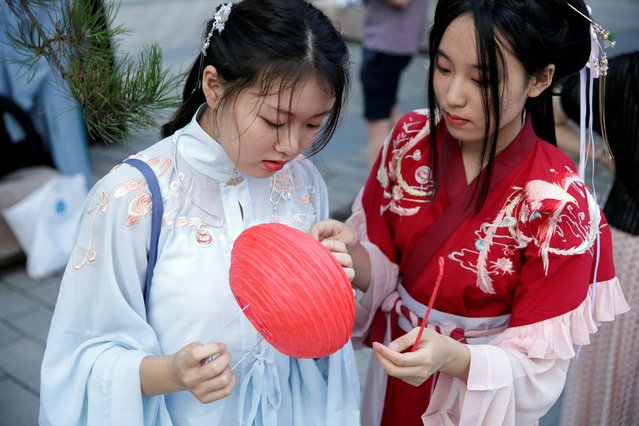
Girls dressed in “Hanfu”, or Han clothing, prepare for an event to mark the traditional Qixi festival, the Chinese equivalent of Valentine's Day, at a park in Beijing, China, August 7, 2019. Chinese for “Han clothing”, “Hanfu” is based on the idea of donning costumes worn in bygone eras by China's dominant Han ethnicity. Some of the most popular styles are from the Ming, Song and Tang dynasties. Hanfu enthusiasts doubled to two million in 2018 from a year earlier, according to a survey by Hanfu Zixun, a popular community account on the Wechat social media platform. (Photo by Jason Lee/Reuters)
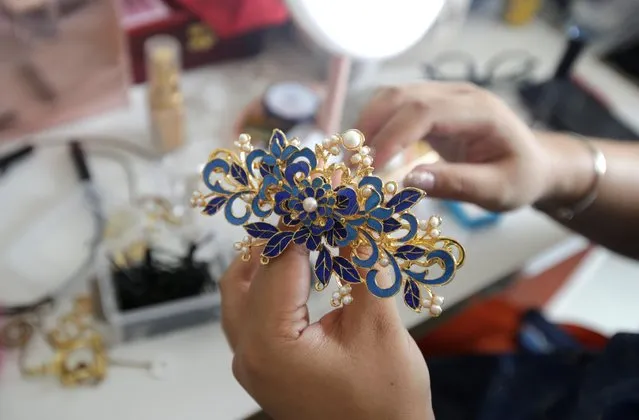
Li Doudou holds a hair ornament as she gets ready to attend a performance of the “guqin” traditional musical instrument, an ancient seven-stringed zither, at her rental home in Hebei province, China on August 18, 2019. Li is a devotee of the Hanfu movement, which has spanned a decade and in the last year has seen a spike in followers, partly thanks to social media. Li donned her first gown in March and has lost count of the Hanfu outfits in her wardrobe, she says. (Photo by Jason Lee/Reuters)

Li Doudou applies makeup before attending a performance of the “guqin” traditional musical instrument, an ancient seven-stringed zither, at her rental home in Hebei province, China, August 18, 2019. “The biggest change for me personally is it gives me more self-confidence”, she said. “When I wear Hanfu, I feel like I'm the most beautiful person in the world”. (Photo by Jason Lee/Reuters)
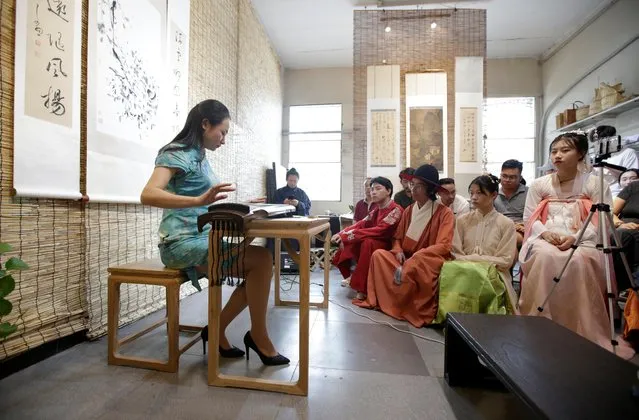
Young people dressed in “Hanfu”, or Han clothing, attend a performance of the “guqin” traditional musical instrument at an art space in Beijing, China, August 18, 2019. What keeps people reaching for their Hanfu outfits is often more personal. Since starting to wear Hanfu, Li Doudou said she has attended a class on traditional tea ceremonies. She is also planning to learn to play the “guqin”, an ancient seven-stringed zither. (Photo by Jason Lee/Reuters)
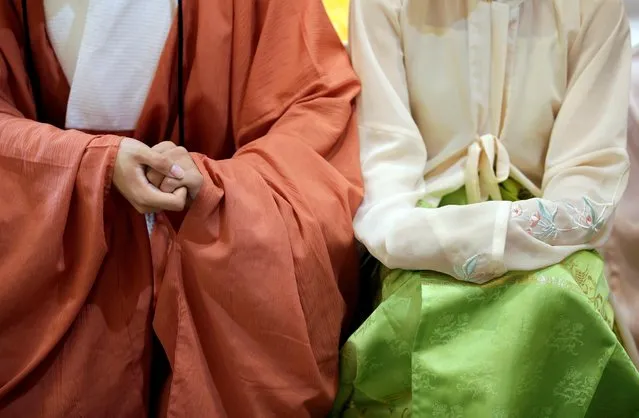
Hai Zhaohang (L) and Zhao Xueqin dressed in “Hanfu”, or Han clothing, attend a performance of the “guqin” traditional musical instrument, an ancient seven-stringed zither, in Beijing, China, August 18, 2019. (Photo by Jason Lee/Reuters)
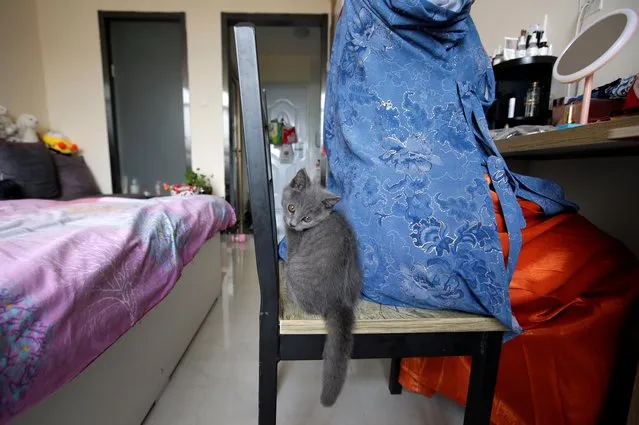
A cat sits next to Li Doudou as she gets ready to attend a performance of the “guqin” traditional musical instrument, an ancient seven-stringed zither, at her rental home in Hebei province, China, August 18, 2019. (Photo by Jason Lee/Reuters)
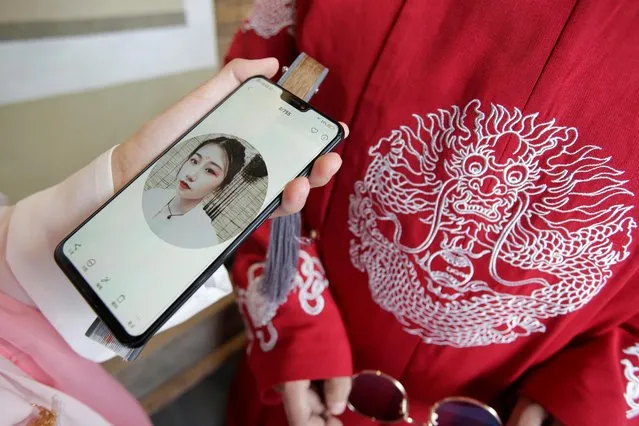
Lu Xiaowei shows a selfie taken while she was dressed in “Hanfu”, or Han clothing, in Beijing, China, August 18, 2019. (Photo by Jason Lee/Reuters)
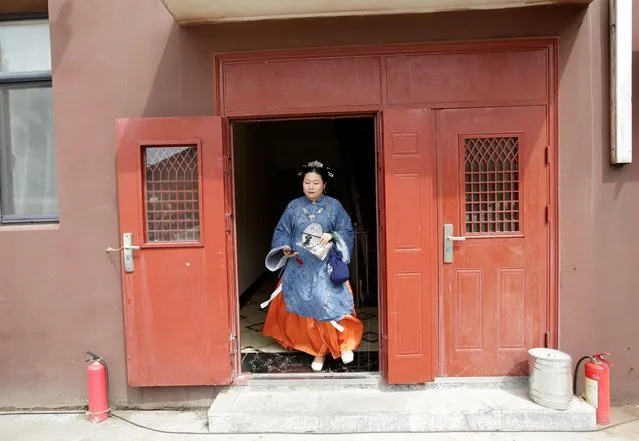
Li Doudou, dressed in “Hanfu”, or Han clothing, leaves an apartment block for a performance of the “guqin” traditional musical instrument, an ancient seven-stringed zither, in Hebei province, China, August 18, 2019. (Photo by Jason Lee/Reuters)
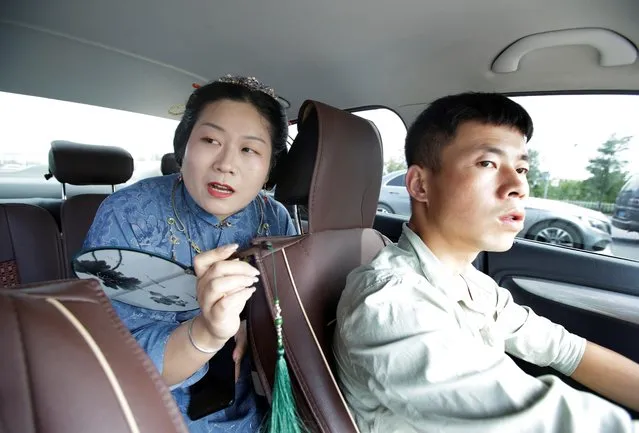
Li Doudou, dressed in “Hanfu”, or Han clothing, speaks to a taxi driver on her way to attend a performance of the “guqin” traditional musical instrument, an ancient seven-stringed zither, in Beijing, China, August 18, 2019. (Photo by Jason Lee/Reuters)
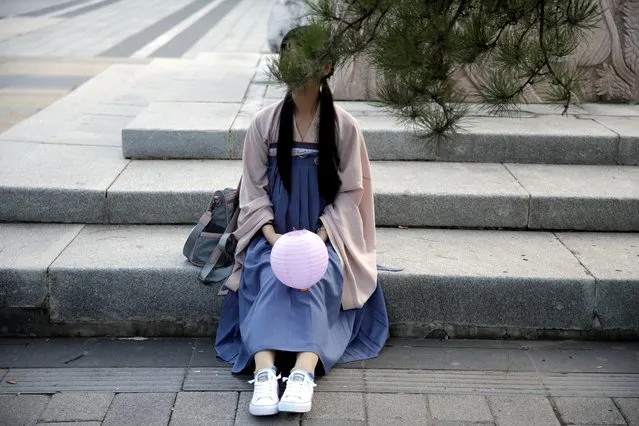
A girl dressed in “Hanfu” sits on a step as she waits to attend an event marking the traditional Qixi festival at a park in Beijing, China, August 7, 2019. Many Hanfu followers like the clothes for the fashion statement, but some, say its significance is greater. “It's to propagate China's traditional culture”, said another girl, who only gave her surname, Li. (Photo by Jason Lee/Reuters)
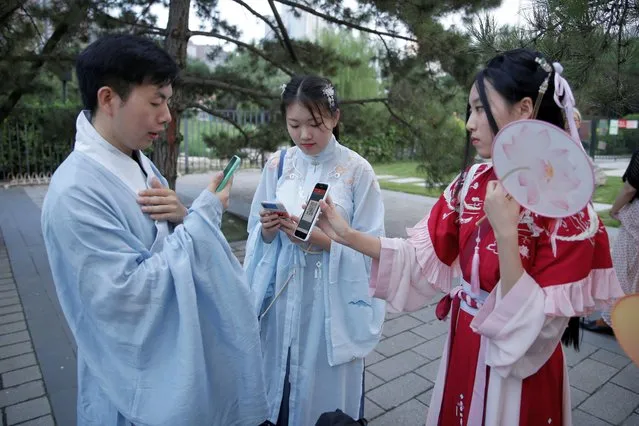
Young people dressed in “Hanfu”, or Han clothing, use their mobile devices at an event marking the traditional Qixi festival, the Chinese equivalent of Valentine's Day, at a park in Beijing, China, August 7, 2019. (Photo by Jason Lee/Reuters)
23 Sep 2019 00:05:00,
post received
0 comments
